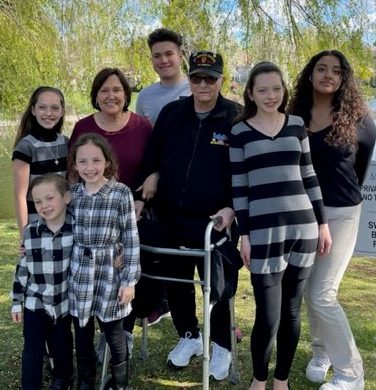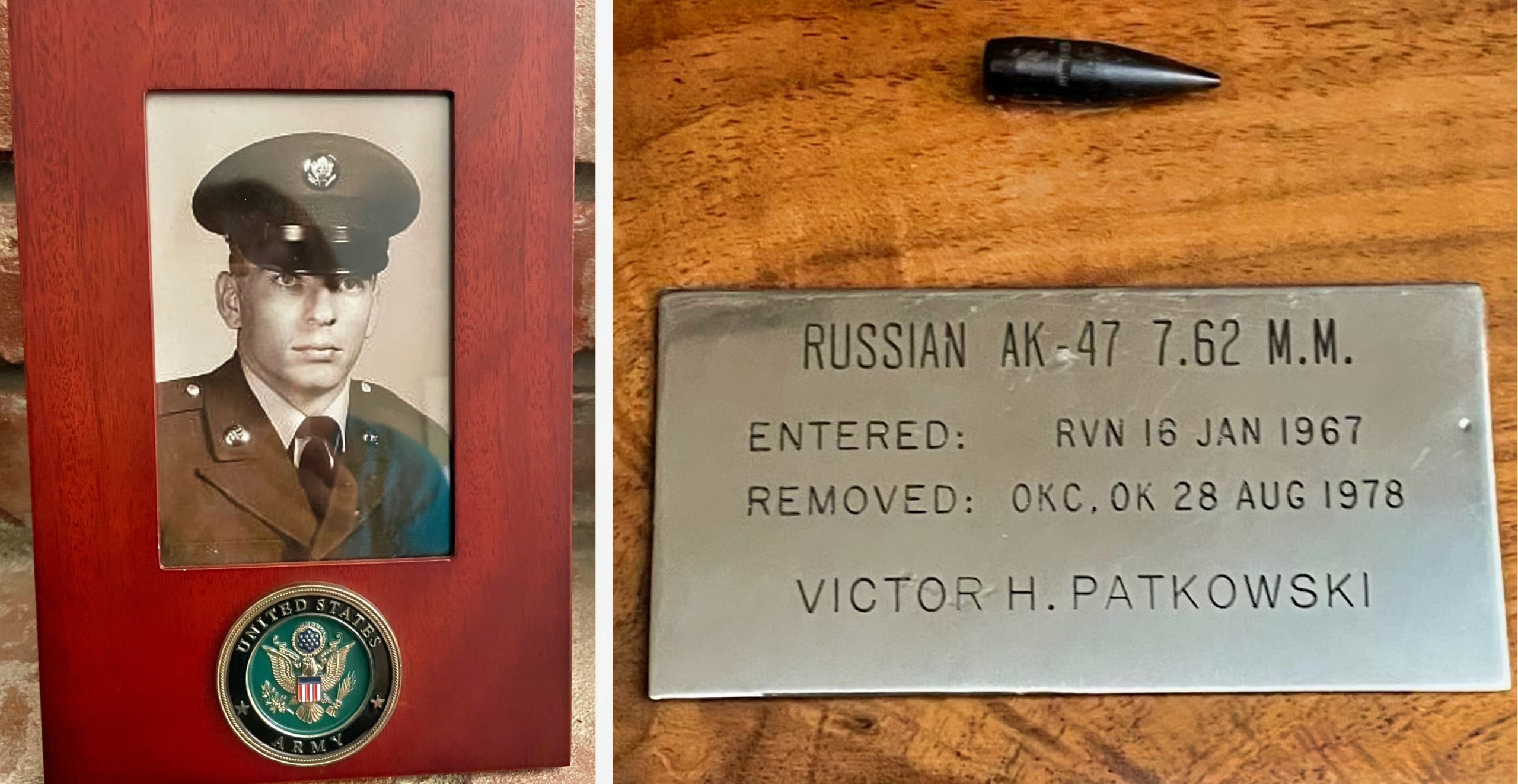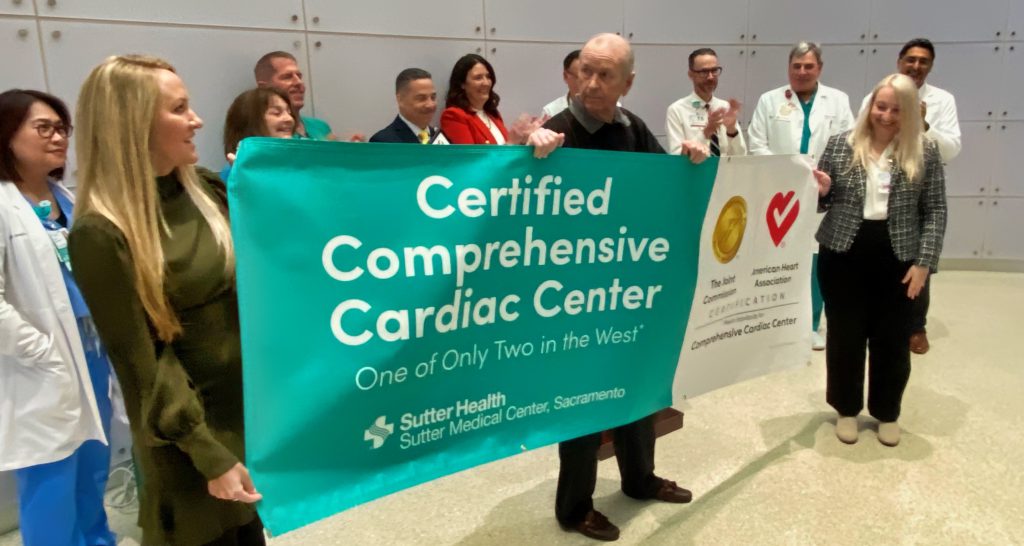Vic Patkowski, left, was shot through the heart and lung during the Vietnam War … and survived. The bullet wasn’t removed until a decade later, right. Patkowski has endured several brushes with death through his life, and his latest lifesaver was a tool called TCAR that helped clear his carotid arteries.
By Marika Rose, Vitals Contributor
As a young Army infantryman stationed in Vietnam’s Iron Triangle, Victor “Vic” Patkowski was hit by bullets from an enemy AK-47, puncturing his heart and lungs. When he entered the field trauma center, he told the doctor, “Help me, I’m dying,” and he was right: His heart stopped during surgery and Patkowski recalls that he “went to heaven.”
He was transported to Walter Reed Medical Center where the trauma surgeon told him he’d never seen someone live through that kind of wound. In the waiting room, a chance meeting with Dwight D. Eisenhower prompted the former president and World War II general to insist that Patkowski see the doctor first, stating, “Take him. He’s the hero here today.”
“It’s a miracle I’m still alive,” Patkowski says.

After another health setback, Victor Patkowski, center, returned to spending time with his wife, children and grandchildren.
That day was the first of many medical challenges and miracles over the 78-year-old’s lifetime. After the war, Patkowski continued serving his country as an industrial engineer in the U.S. Air Force Civil Service until his retirement in 2002, but his wartime injuries continued to impact his health. He had heart issues for years and was diagnosed with Stage 4 head and neck cancer in 2013, for which treatment left extensive scar tissue.
In 2022, a CT scan indicated severe blockages in both of his carotid arteries. His scar tissue and weakened heart made Patkowski a risky candidate for traditional Carotid Endarterectomy, but fortunately his doctors at Sutter Roseville Medical Center — Drs. Dmitri Gelfand and Joel Crawford — are among few regional vascular surgery groups experienced in a new safer and less-invasive procedure called Transcarotid Artery Revascularization, or TCAR.
Like Patkowski, many patients can develop scar tissue from surgery, radiation treatment or injury, or have a specific anatomical or surgical reason that makes traditional Carotid Endarterectomy too dangerous. Patients may also present with other significant risk factors, including being over 55 years of age with at least two atherosclerotic risk factors such as active cigarette smoking, diabetes, hypertension, peripheral arterial disease, coronary artery disease or clinical occult cerebral infarction. These patients benefit most from TCAR.
“TCAR is a revolutionary new tool combining the surgical principles of neuroprotection and game-changing endovascular technology. It’s minimally invasive, accurate and safer for many patients who are screened for risk factors,” said Dr. Crawford.
Dr. Gelfand added, “Patients are referred to us when the traditional surgical procedure for carotid stenosis is too risky or complicated to perform. Patients who would not tolerate general anesthesia are also good candidates since TCAR can be performed under local anesthesia.”
Patkowski’s wife, Ruth, a retired nurse, says that with his many medical challenges, the TCAR procedure was seamless and has allowed him to continue living a miraculous life, enjoying his family — including seven grandchildren — and thanking God for his blessings.
“In the face of death, there’s always hope in life,” added Patkowski.
To learn more about TCAR, hear Dr. Crawford discuss carotid artery disease and how the new tool has been a life-saver for those not able to receive the traditional surgical procedure by clicking here.





